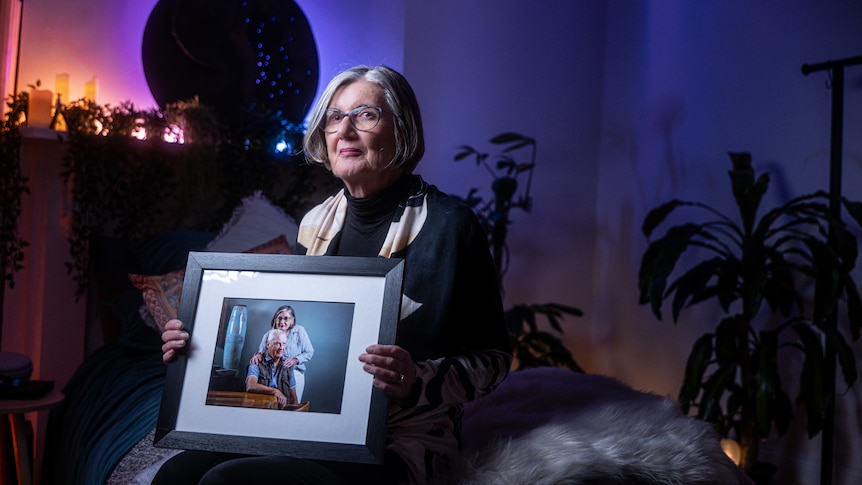
An Australian study has revealed that a synthetic version of a compound found in magic mushrooms significantly reduced depression, anxiety, and feelings of hopelessness in terminally ill patients. While the study involved a small group of participants, researchers are optimistic about the findings. National Health reporter Stephanie Dalzell explores the potential of this groundbreaking approach.
Pat Quinn, holding a cherished photograph of her late husband Michael, revisits the clinic that provided him solace in his final days. Michael Quinn, diagnosed with advanced prostate cancer, discovered a clinical trial exploring the effects of psychedelics combined with psychotherapy on terminal illness distress. This trial, which Michael joined, marked a pivotal moment in his journey towards acceptance.
The Study and Its Findings
Conducted by Australian researchers, the trial involved 35 terminally ill patients who received a combination of psychotherapy and synthetic psilocybin, a compound derived from magic mushrooms. Despite the small sample size, one of the study’s authors, Margaret Ross, reported promising outcomes.
“We did see reductions in depression, anxiety, hopelessness, demoralisation, so we saw big reductions in psychological distress,” said Margaret Ross.
Participants received two doses, including placebos, integrated with therapy sessions. Study co-author Justin Dwyer highlighted the essential role of therapy in the treatment but acknowledged its demanding nature, which might not suit everyone, especially those with unresolved trauma or psychiatric conditions.
“If they struggle to tell the difference between emotions and physical sensations, if they’ve got a lot of really raw, unprocessed trauma that they’re avoiding, I think potentially it could be a very harmful treatment,” Dwyer cautioned.
Historical Context and Challenges
The exploration of psychedelic therapy is not new but has been fraught with challenges. For decades, the medical community largely dismissed it, burdened by the stigma from the war on drugs initiated by Richard Nixon and the lack of interest from pharmaceutical companies unable to patent such treatments. However, recent studies like this one are reigniting interest and debate.
Professor Ian Hickie from Sydney University’s Brain and Mind Centre recognizes the potential but emphasizes the need for further research.
“The psychedelics alone won’t be the solution. What’s the best combination? What opportunity is created and can you capitalise on that?” Hickie questioned.
Implications and Future Prospects
As clinicians aim to expand the research, the potential implications of these findings are significant. Pat Quinn hopes that the therapy, which provided her husband with much-needed peace, will become more accessible, helping many others in similar situations.
“I don’t think he would have coped and I don’t know that I would have coped either if he hadn’t been through that, and I would hope that it could be expanded to help a lot of other people. I know it’s not a cure but if it helps people to deal with what they’re going through, it’s got to be beneficial,” Pat Quinn expressed.
The announcement comes as the medical community continues to explore innovative approaches to palliative care, seeking to improve the quality of life for those facing terminal diagnoses. While the road ahead is complex, the study’s results offer a glimmer of hope and a call for further exploration into the therapeutic potential of psychedelics.





